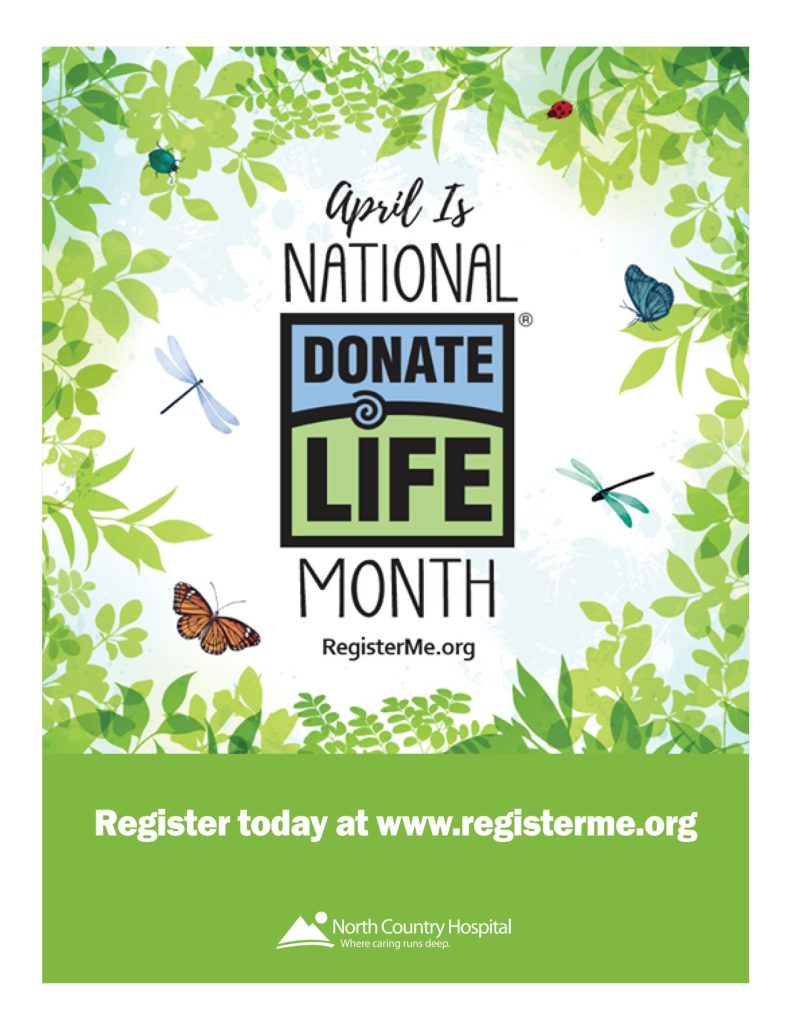It’s hard to imagine that a day will come when we won’t be here. Talking about, thinking about, and certainly planning for the inevitable isn’t something that comes naturally to many of us. Life is so fast-paced and busy that we often forget it’s temporary. However, for those who have ever needed a life-saving organ, time may feel like it’s standing still. In between those moments, (if we’re lucky enough to have them), we all have an opportunity to contemplate our legacies and what we want people to think, say, and know about us when we are gone. For some, they won’t ever want anyone to know about their generous gifts, but one of the most selfless gifts we can all consider giving is our organs.
Organ donation is a generous and lifegiving act, one thing that we can do sometimes even after we’ve lost our own, that can save lives and improve the quality of life for those in need. When someone makes the quality decision to donate their organs, they have the power to make a significant impact on someone’s life who may have otherwise passed away. They have the power to advance science research and to offer new life and a legacy far beyond any other gift. When someone needs an organ transplant it is often the last resort, sometimes after other organs have failed, and with a worldwide shortage, these gifts are literally life-giving.
To donate an organ, there are many different options and guidelines. These are the specific details: Vermont Ethics Network. (www.vtethicsnetwork.org)
- Anyone can become an organ donor. Age and health considerations are assessed for each case at the time of death.
- There are few exclusions to donations. Anyone can register to be an organ donor if that is their wish.
- Even if a person is a registered organ donor, every effort will be made to save their life. Organ and tissue donation will only be pursued after death is legally declared.
- If a person is not in the organ donor registry (even if they have indicated on their advance directive to be an organ donor), next of kin is contacted to give authorization for organ donation.
- If a person is under the age of 18 at the time they register, consent for organ donation is the decision of their parent(s)/legal guardian.
- There is no cost to the family of the donors for organ and tissue donation. Expenses related to the donation are paid by the federally designated organ procurement organization.
- Donor organs are matched to recipients based on blood and tissue type, geographic location, and medical urgency.
- Social status, wealth, race, gender, age, etc. are not considered when determining who receives an organ.
- It is against the law in the United States to buy or sell organs.
- Donor registries are a fast and easy way to register your consent for organ and tissue donation and provide an electronic record that can be accessed 24/7 in the event of your death.
- To become an organ donor in Vermont, register online at Donate Life New England or enroll at the Department of Motor Vehicles (DMV). By registering you give legal consent for organ and tissue donation.
- If you signed up to be a donor while at the Vermont DMV after January 2013, you are automatically enrolled in the Donate Life New England Registry. Before January 2013, the Donate Life New England registry was not linked to the DMV.
When it comes to donating an organ, many might decide that it’s not something they will do while living for various reasons. However, they will donate their organs upon death or during specific advanced directive wishes. This is something you should consider talking with your family or loved ones about. If you have “a person,” you might want to consider talking to them about your wishes. In cases of unforeseen circumstances or sudden deaths, knowing a loved one has chosen to donate their organ can feel like a comfort, while not knowing and having them taken away to help others can feel sudden and abrupt.
April is Organ Donation Month. If you didn’t know how to start the conversation, or you always meant to look into what might be best for you, here’s the perfect reminder or reason to start the conversation. Knowing that you will have the potential to save a life or improve the life of someone else can enhance your own sense of fulfillment and well-being. Knowing that you are helping to advance medical research and technology might be something you counted yourself out of, and now you can be a forerunner in the efforts. Saving a life, with organ donation can start even by just talking about it, raising awareness, and helping others to understand what the options are. DonateLife.net reminds us that one organ donation can save up to eight lives, and if you think about the ripple effect, the eight families, their friends, and circles of people who would have new hope, that is an incredible opportunity! We all have the opportunity to impact our own legacies by what we choose to do today. One way is how we decide to give, just maybe, we might consider giving the legacy of life.
Mary Hoadley
Director Of The Wellness Center


